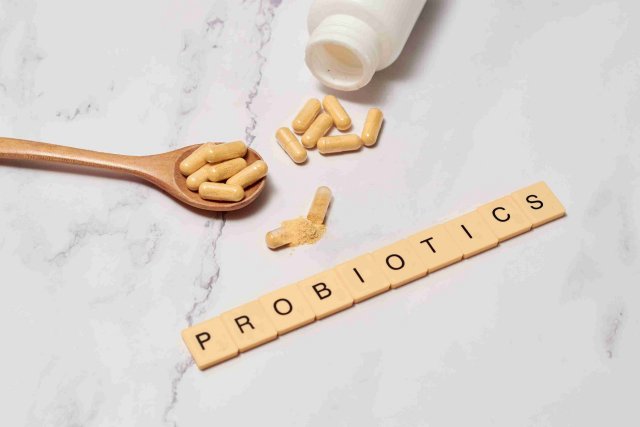The intersection of mental health and gut health has garnered significant attention in recent years. The gut-brain axis, a complex communication network between the gastrointestinal system and the brain, is now recognized as a key player in emotional and cognitive function. Probiotics, live microorganisms that benefit the host when consumed in adequate amounts, have emerged as potential therapeutic agents for mental health disorders, including anxiety, depression, and bipolar disorder.
This article delves deeper into the research, mechanisms, and potential clinical applications of probiotics in mental health.
The Science of the Gut-Brain Axis
The gut-brain axis relies on bidirectional communication mediated by:
- Microbial Metabolites: Gut bacteria produce short-chain fatty acids (SCFAs), neurotransmitters, and hormones that influence brain activity.
- The Vagus Nerve: This nerve acts as a physical link between the gut and brain, transmitting signals that can influence mood and stress responses.
- The Immune System: Gut microbiota regulate immune responses, which are closely linked to inflammation—a known factor in mental health disorders.
Studies show that disruptions in the gut microbiota (dysbiosis) can lead to systemic inflammation and altered neurotransmitter levels, potentially contributing to mental health conditions.
Probiotics and Depression
Depression, characterized by persistent sadness and a loss of interest in daily activities, affects millions worldwide. Recent studies have shown the following:
- Clinical Evidence:
- A double-blind, placebo-controlled trial published in Translational Psychiatry demonstrated that a multi-strain probiotic supplement reduced depressive symptoms in individuals with major depressive disorder (MDD). (Translational Psychiatry, 2017)
- Another study in Neuropsychobiology showed that probiotics improved mood in individuals without clinical depression, suggesting preventive potential. (Neuropsychobiology, 2019)
- Key Mechanisms:
- Probiotics modulate levels of serotonin, the “feel-good” neurotransmitter, largely produced in the gut.
- They reduce systemic inflammation, which is often elevated in individuals with depression.
Probiotics and Anxiety
Anxiety disorders involve excessive worry, restlessness, and fear. Research highlights:
- Meta-Analysis Findings:
- A meta-analysis in General Psychiatry reviewed randomized controlled trials (RCTs) and found that probiotics significantly reduced anxiety symptoms, particularly in subclinical populations. (General Psychiatry, 2019)
- Lactobacillus rhamnosus was notably effective in reducing anxiety-like behaviors in animal studies and improving GABA receptor expression.
- Mechanisms of Action:
- Probiotics produce gamma-aminobutyric acid (GABA), an inhibitory neurotransmitter that calms the brain.
- They enhance gut barrier function, preventing pro-inflammatory molecules from entering circulation and affecting the brain.
Probiotics and Bipolar Disorder
While studies are more limited, emerging research points to a role for probiotics in stabilizing mood in bipolar disorder:
- Clinical Trials:
- A pilot study in Bipolar Disorders assessed the impact of probiotics on manic episodes. Patients receiving probiotics experienced fewer hospitalizations and longer periods of remission compared to those on a placebo. (Bipolar Disorders, 2018)
- Probiotics were associated with reduced levels of systemic inflammation, which may exacerbate mood dysregulation.
- Future Directions:
- Research is exploring how probiotics can complement existing treatments like mood stabilizers and antipsychotics.
Other Mechanisms Supporting Mental Health
Probiotics influence mental health through additional pathways:
- Neuroinflammation Reduction:
- Chronic inflammation contributes to neurodegenerative processes and mental health disorders. Probiotics, particularly Bifidobacterium and Lactobacillus strains, reduce pro-inflammatory cytokines.
- Hypothalamic-Pituitary-Adrenal (HPA) Axis Regulation:
- The HPA axis controls the stress response. Probiotics can dampen its overactivation, leading to reduced stress and anxiety symptoms.
- Tryptophan Metabolism:
- Tryptophan, a precursor to serotonin, is metabolized more effectively in the presence of beneficial gut bacteria, enhancing mood stability.
Considerations for Probiotic Use
- Strain-Specific Effects:
- Not all probiotics have the same effects. Strains like Lactobacillus acidophilus, Bifidobacterium longum, and Lactobacillus helveticus show the most promise in mental health.
- Safety and Side Effects:
- Probiotics are generally safe but can cause mild gastrointestinal discomfort in some individuals.
- Patients with compromised immune systems should consult a doctor before use.
- Adjunct Therapy:
- Probiotics are not a standalone treatment. They should be used alongside traditional therapies such as cognitive behavioral therapy (CBT) or medications.
Future Research
While the evidence is promising, gaps remain:
- Long-Term Effects: Studies are needed to evaluate the sustained impact of probiotics on mental health.
- Population-Specific Studies: More trials are required in diverse populations, including children, the elderly, and those with severe mental illnesses.
- Probiotic Cocktails: Research is exploring combinations of strains tailored to specific conditions.
Probiotics represent an exciting frontier in mental health, offering a natural, low-risk intervention for anxiety, depression, and potentially bipolar disorder. By modulating the gut-brain axis, reducing inflammation, and enhancing neurotransmitter production, these “good bacteria” can complement existing treatments. However, further research is essential to optimize their use and fully understand their mechanisms.
Individuals interested in probiotics for mental health should consult healthcare providers to develop a comprehensive and personalized treatment plan.
